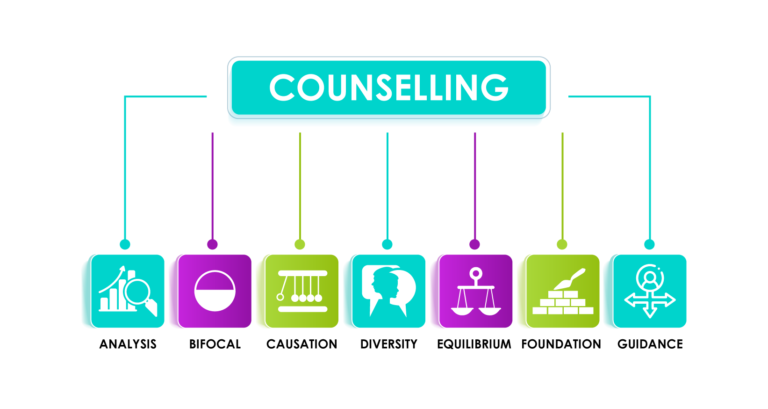
Frequently Asked Question (FAQs)
Research shows that successful counselling depends on multiple factors – the severity of the problem, the counsellor’s skill and the person’s faith in the counselling.
A good counselling relationship depends on:
- Trust and respect
- Agreement on the objectives of counselling
- Collaboration and a shared sense of
Alcohol has the potential to create tension in relationships. The first step is to talk about it when the person is sober. Then, find out of drinking is triggered by certain life events and seek appropriate professional help.
It is utterly unacceptable that violence results from drinking. The party concerned should immediately seek professional help.
Knowing if a relationship will succeed in the long term is challenging. But unfortunately, most people make the mistake of establishing their choice on feelings and “chemistry” rather than on principles, purpose, values and compatibility.
Global statistics show that women generally tend to marry older men. However, cliches abound when the woman is older – a phenomenon that is increasingly becoming common. In most cases, the higher the age, the less significant the age gap. For example, a 20F/40M gap is less acceptable than a 40F/60M gap. What matters most is for the relationship to be healthy, respectful and loving — however, decisions for a very high female-male age gap require careful, practical considerations.
It is not uncommon to experience this confusing situation.
Women have a biological clock, especially if they want to have children without the complications of geriatric pregnancies. As a result, unnecessary delays should be discouraged but not without finding out any reasons for the delays – financial, cultural, expectations, loss of interest, major character issues, attitudes towards marriage, fear of commitment etc
The inability to have children is very challenging. Difficulties with conception, miscarriages, and certain medical conditions, among other factors, can contribute to the failure to have children – unfortunately, even straining solid relationships. However, getting through may involve open communication, seeking help (including infertility support networks), medical treatment and adoption/fostering. In addition, spiritual guides have been a beneficial support system to many couples. Whatever the case, appreciating each other and valuing intimacy is paramount – no matter what your next steps are.
Being pressured into having premarital sex is not a healthy dynamic for any relationship. Successful relationships anchor on trust and mutuality – and being coerced to do something that violates your value system or conviction can be damaging. It can negatively affect your sense of self-esteem. A good starting point would be to have an open, considerate, empathetic and honest conversation with the person to negotiate these differences so they don’t create tension in the future.
Abuse of any kind is complicated, and it can be challenging to identify – especially for emotional and verbal abuse, which are more subtle. Physical abuse is overt and evident with often tangible evidence of violence, but emotionally and verbally abusive relationships can involve sophisticated— and toxic—mind games. As a result, emotional and verbal abuse can be just as damaging.
If you have invested a great deal in the relationship but are not yet married, the best option would be to end the relationship, rather than think that the abuser will change once you get married and that everything will be OK. If already married, the first step would be to understand any underlying issues or triggers and seek professional help. The next step would be to make an informed decision on the way forward. Far too often, it is possible to judge people from the outside without any idea of what they are going through and what their legitimate reasons might be for staying.
Notwithstanding, anyone involved in an abusive relationship must urgently seek professional help
- info@cornerstonecounsellingnetwork.com
- +(44) 7415478047 (SMS/Whatsapp)
- 55 Lakedale Road London SE18 1PR United Kingdom



